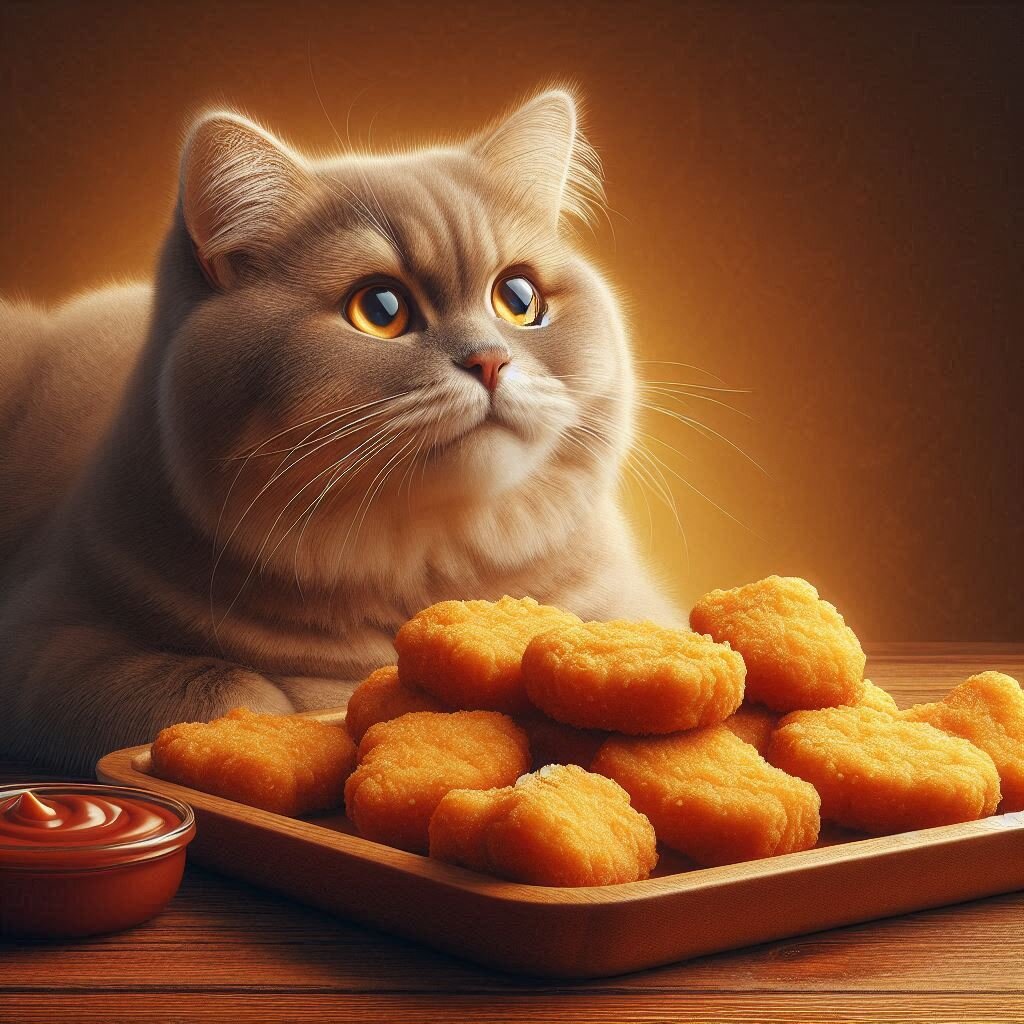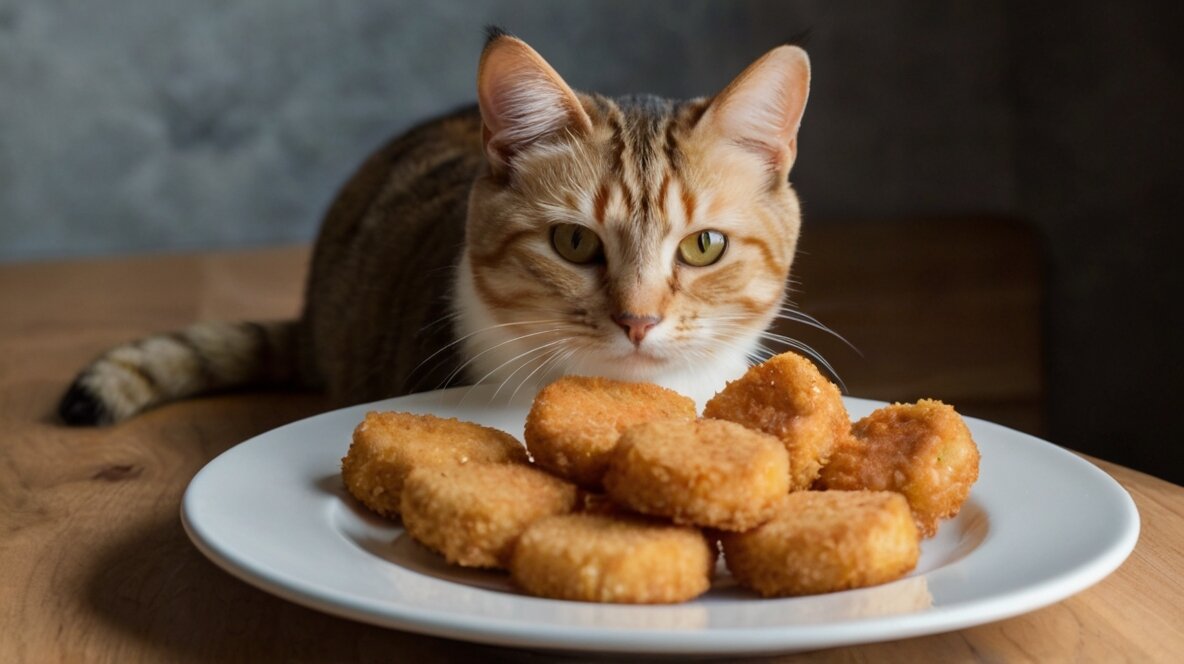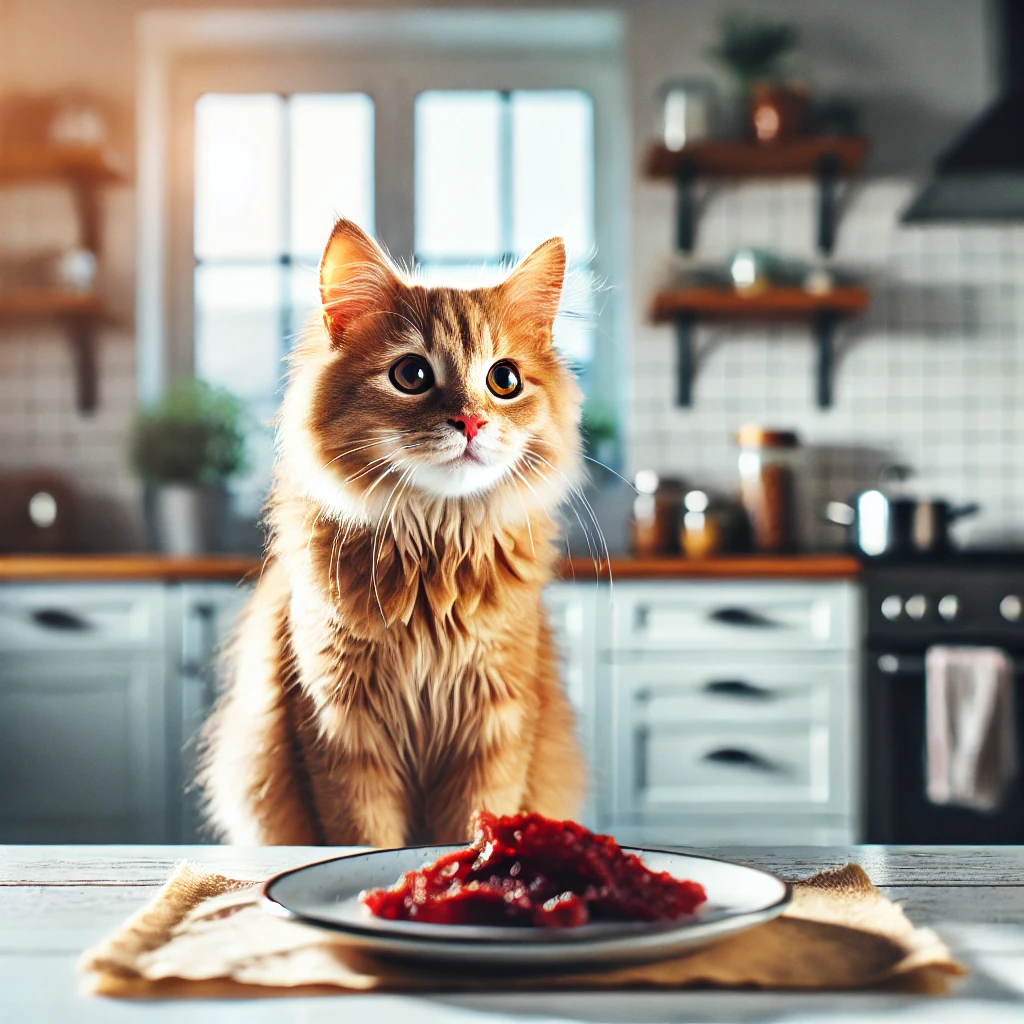Introduction
If you’ve ever been tempted to share your McDonald’s Chicken Nuggets with your cat, you’re not alone. Those golden, crispy morsels are hard to resist for humans, and our feline friends might seem equally intrigued by their tantalizing smell. However, before you toss a nugget to your furry companion, it’s crucial to understand the potential risks and implications. Cats have very specific dietary needs, and what’s delicious for us could be dangerous for them. This article will delve into whether McDonald’s Chicken Nuggets are safe for cats and what every cat owner should know.
Table of Contents
Can Cats Eat McDonald’s Chicken Nuggets?
The short answer is no, cats should not eat McDonald’s Chicken Nuggets. While it might seem harmless to let your cat have a bite, these fast food items are far from ideal for a feline diet. Chicken nuggets are processed, heavily seasoned, and contain ingredients that could be harmful to cats. Unlike humans, cats require a diet that is high in animal-based proteins and free from many of the additives found in fast food.
What’s in a McDonald’s Chicken Nugget?
McDonald’s Chicken Nuggets are made from a blend of chicken meat, flour, water, salt, and various seasonings. They also contain preservatives, artificial flavors, and other additives to enhance taste and shelf life. One of the key ingredients is the breading, which is high in carbohydrates and often seasoned with onion or garlic powder—both of which are toxic to cats. Additionally, the high sodium and fat content can lead to health issues such as obesity, pancreatitis, and heart disease in cats.
Why Cats Are Drawn to Chicken Nuggets
Cats are often attracted to the smell and taste of chicken nuggets because of their strong aroma and savory flavor. Chicken, in general, is a favorite for many cats due to its protein content. However, the way chicken nuggets are prepared makes them far from a healthy option. The added fats, oils, and seasonings are appealing to a cat’s sense of smell but can lead to serious health problems.

The Dangers of Feeding Chicken Nuggets to Cats
One of the biggest concerns with feeding chicken nuggets to cats is the high sodium content. Cats have a very low salt tolerance, and excessive sodium intake can lead to salt poisoning. Symptoms of salt poisoning include vomiting, diarrhea, lethargy, and even seizures in severe cases. The preservatives and artificial flavors in chicken nuggets are also harmful, potentially causing gastrointestinal upset or allergic reactions. Moreover, the high-fat content can contribute to obesity, a growing problem among domestic cats, leading to further complications like diabetes and joint issues.
Nutritional Needs of Cats
Cats are obligate carnivores, meaning they require a diet rich in animal-based proteins. Their nutritional needs include taurine, an essential amino acid that is critical for heart health, vision, and overall well-being. Unlike chicken nuggets, which are loaded with fillers and unnecessary additives, a cat’s diet should be composed primarily of high-quality meat, supplemented with specific vitamins and minerals. Dry or wet cat food formulated to meet these nutritional needs is always the best choice.
Why Homemade Cat Food is Better
For those who wish to give their cats a treat, homemade cat food is a much better option than processed human food like chicken nuggets. Preparing cat food at home allows you to control the ingredients and ensure that your pet is getting the nutrients they need. Simple recipes using cooked, unseasoned chicken or turkey can be a great way to give your cat a healthy, protein-rich meal without the risks associated with fast food.
Health Risks of Feeding Human Food to Cats
Beyond chicken nuggets, many human foods are dangerous for cats. Toxic food for cats, Foods like chocolate, grapes, onions, and garlic are toxic and can lead to severe health issues or even death. Additionally, processed foods often contain high levels of sugar, fat, and salt, all of which are detrimental to a cat’s health. Fast food, in particular, is loaded with these harmful ingredients, making it one of the worst choices for a pet snack.
Signs of Illness from Ingesting Chicken Nuggets
If your cat has consumed chicken nuggets, it’s important to watch for signs of illness. Symptoms may include vomiting, diarrhea, lethargy, and abdominal pain. In some cases, more serious symptoms such as tremors, difficulty breathing, or seizures can occur. If your cat displays any of these signs, it’s crucial to seek veterinary attention immediately. Early intervention can prevent more severe complications.
What to Do if Your Cat Eats Chicken Nuggets
If your cat happens to sneak a bite of chicken nugget, don’t panic, but take action quickly. Remove any remaining nuggets from their reach and monitor them closely for signs of distress. Encourage them to drink water to help flush out the excess sodium and other harmful substances. If your cat shows any signs of illness, contact your veterinarian immediately. They may advise you to bring your cat in for a checkup or offer guidance on how to treat the symptoms at home.
Safe Treat Alternatives for Cats
Instead of risking your cat’s health with chicken nuggets, opt for safer, healthier treats. Many commercially available cat treats are designed to be nutritious and appealing to cats. “Healthy Cat Diet” Alternatively, you can prepare simple homemade treats, such as small pieces of cooked, unseasoned chicken or turkey. These options provide a tasty snack that aligns with your cat’s dietary needs without the added risks.
How to Prevent Cats from Eating Human Food
Preventing your cat from eating human food requires a combination of training and vigilance. Start by keeping all human food out of your cat’s reach, either by storing it in secure containers or putting it away immediately after meals. Training your cat to avoid begging behavior is also important. Consistently discourage begging by ignoring your cat when they do it, and reward them when they are calm and well-behaved around food. Over time, this will help reinforce the idea that human food is off-limits.
Myths and Misconceptions About Cats and Human Food
There are many myths about what cats can safely eat, and it’s important to separate fact from fiction. For example, some people believe that giving cats milk is healthy, when in fact, most adult cats are lactose intolerant. Similarly, while cats might enjoy the taste of certain human foods, this doesn’t mean those foods are safe or healthy for them. Understanding the specific nutritional needs of cats is key to making informed decisions about their diet.
The Role of Veterinarians in Cat Nutrition
Regular visits to the veterinarian are essential for maintaining your cat’s health, including their dietary needs. A vet can provide personalized advice on what to feed your cat, taking into account their age, weight, and health status. If you’re ever unsure about whether a particular food is safe for your cat, your veterinarian should be your first point of contact. They can also help you design a balanced diet plan that meets all of your cat’s nutritional requirements.
Conclusion
While it might be tempting to share a tasty snack like McDonald’s Chicken Nuggets with your cat, doing so can pose serious health risks. Cats require a diet that is vastly different from our own, and many human foods, including fast food, can be harmful or even toxic to them. Instead of risking your cat’s health, opt for cat-friendly treats that provide the nutrition they need. Always consult with your veterinarian about the best dietary choices for your cat, and remember that keeping them healthy starts with a proper diet.
FAQs
- Can a small piece of chicken nugget hurt my cat?
- While a small piece may not cause immediate harm, it’s best to avoid giving your cat any chicken nuggets due to the potential for toxic ingredients and high sodium content.
- How often can I give my cat human food?
- It’s generally best to avoid feeding your cat human food regularly. Stick to treats specifically designed for cats and consult your vet for safe options.
- What human foods are safe for cats in moderation?
- Some safe human foods for cats include plain, cooked chicken, turkey, or fish, but these should be given in moderation and without seasoning.
- Are there any cat-safe fast food options?
- Fast food is generally not safe for cats due to high levels of salt, fat, and additives. Always opt for cat-friendly treats instead.
- What should I do if my cat shows interest in human food regularly?
- If your cat is consistently begging for human food, try to redirect their attention with cat-safe treats and consult your vet for advice on training and diet.



